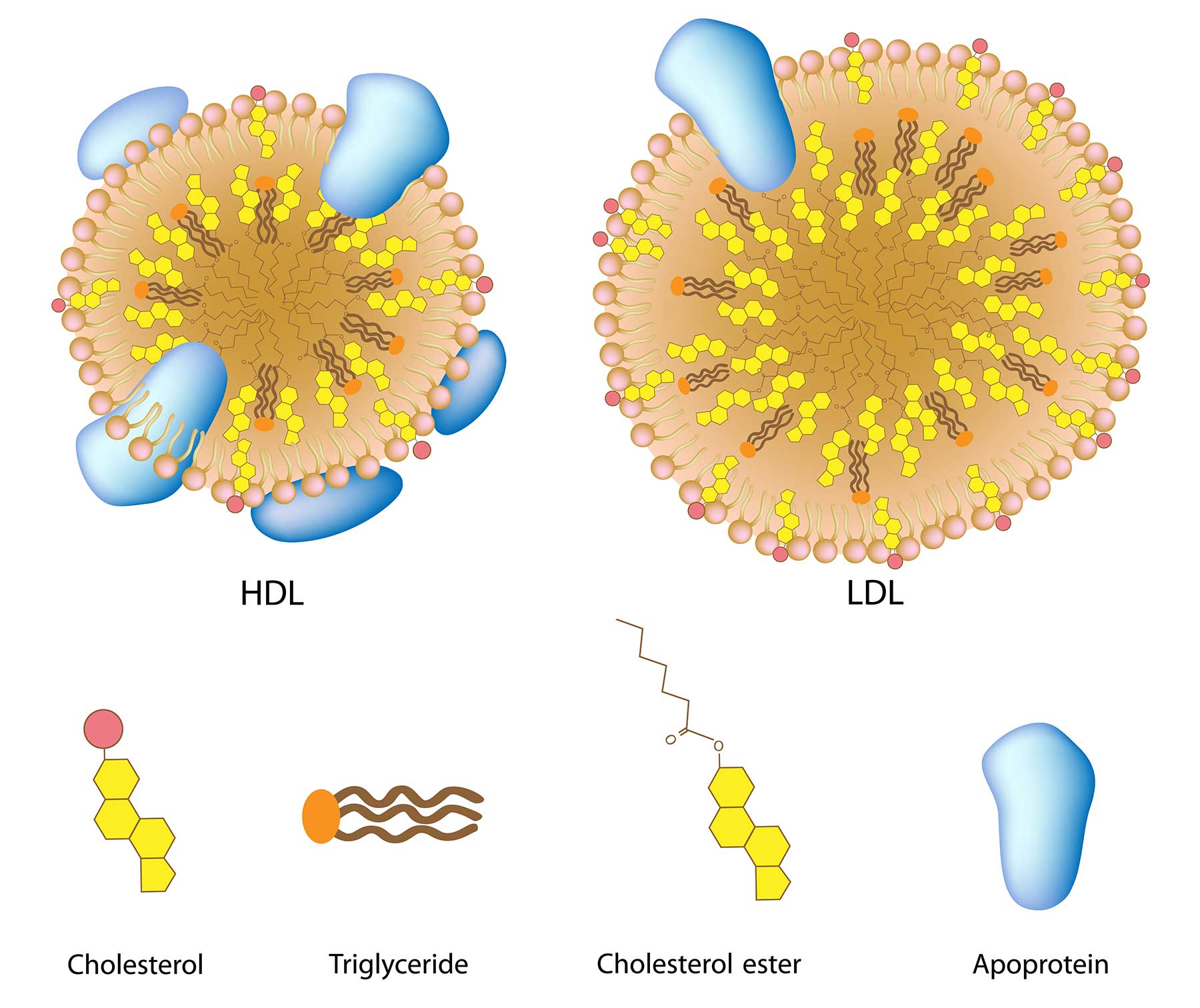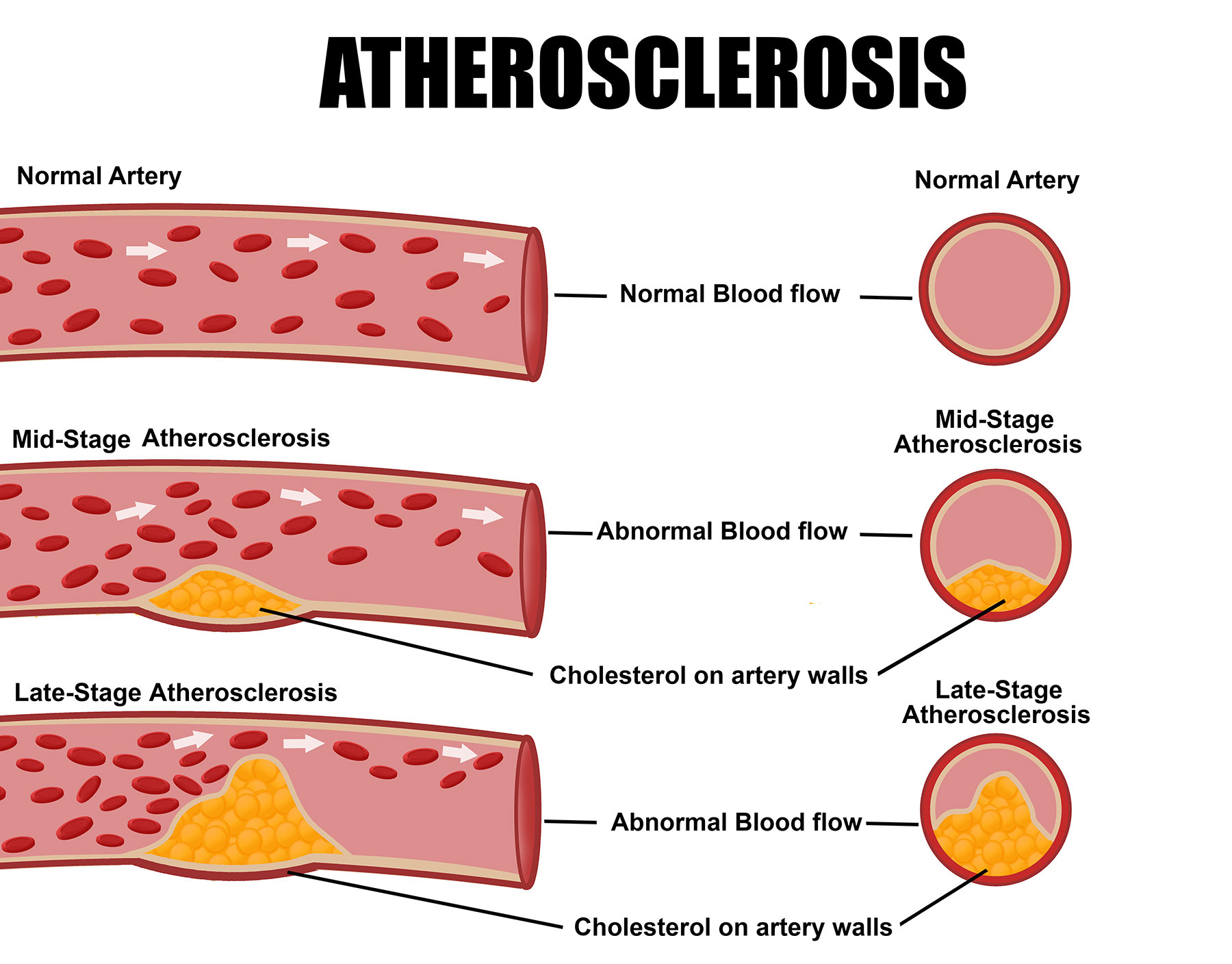What is Apolipoprotein E?
Apolipoproteins are proteins that have binding affinity for lipids to form packages called lipoproteins. They are responsible for transporting lipids through the lymphatic and circulatory systems. The APOE gene encodes the Apolipoprotein E protein, which [...]
What are the signs and symptoms of Type III Hyperlipoproteinemia?
Type III hyperlipoproteinemia is a genetic disorder characterized by high blood cholesterol and triglycerides, leading to atherosclerosis and cardiovascular disease. Signs and symptoms of Type III hyperlipoproteinemia vary in severity. The symptoms for this disorder [...]
What is Atherosclerosis and its associated risk factors?
Atherosclerosis is a condition where plaque progressively builds up in the arteries over time, causing narrowing and hardening of the arteries. Excess LDL cholesterol in the bloodstream accumulates as plaque deposits which restrict or block [...]
What is Hyperlipoproteinemia?
Hyperlipoproteinemia, also known as hyperlipidemia, is a group of disorders characterized by abnormally elevated levels of lipids/lipoproteins in blood. Due to their water-insoluble properties, lipids combine with lipoproteins in order to be transported through the [...]




